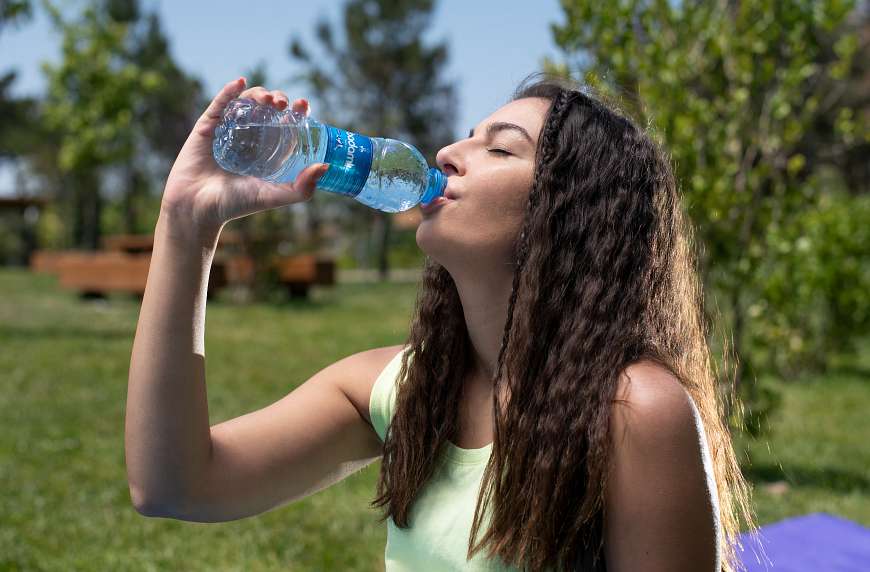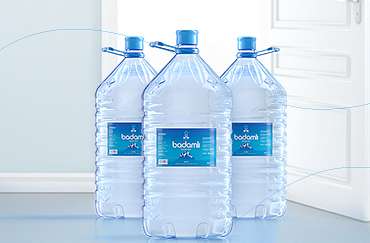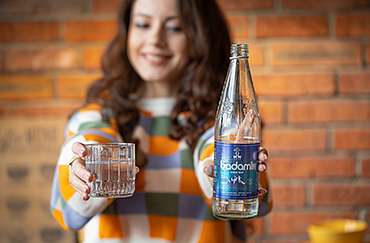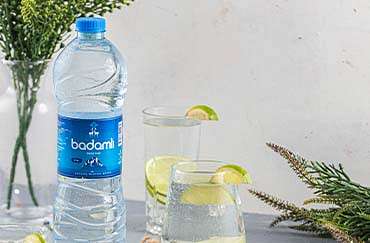
What is water?
Information about water
Water, which makes up a large part of the biological structures of living things, is an indispensable life support for all living things during birth, growth and development. In nature, solid, liquid and gaseous water is found in various water sources in the life of living beings.Three quarters of the earth's surface is covered by water. But most of this water is in the form of salt water in the sea. Only 2.6% of the world's water resources are fresh water. Water is in constant motion on earth. Water is used but not consumed. The water used is usually returned to the environment with the same amount of contamination. Water that evaporates from the seas and mixes with the atmosphere is transported to the earth through precipitation. Part of the precipitation that falls on the earth is carried underground, while another part returns to the sea in the form of a stream. Water stored in the earth's crust also enters the atmosphere through evaporation and transpiration of plants. This phenomenon is called hydraulic cycle.
Why is water important?
It is rare on earth to have such abundant water in the hygienic structure necessary for human consumption. Although three-quarters of the world is covered by visible water, the biggest challenge today is the scarcity of healthy, sustainably usable water supplies.Water is a vital substance for living things. The vital importance of water for humans is indicated by the fact that 50-80% of our body consists of water, in other words, it consists of water. The human body excretes up to 2.5 liters of water per day in various ways. In order for the normal vital functions of the body to continue, this amount must be replaced without the need for water reserves in the body. Therefore, a person needs at least 2.5 liters of water per day.
As a result of daily metabolic events in our body, 300 ml of water is formed from fat, carbohydrates and proteins. In addition, an average of 700 ml of water is taken with food taken during the day. If nutrition is normal and metabolism is sufficient, the need for 1 liter of water is met. The remaining water needs, which vary between 1.5-2 liters depending on age, should be met by drinking. Depending on the society, culture and traditions in which people live, people meet their water needs from suitable drinks such as spring water, Natural Mineral Water, fruit juice, city electricity network, tea, coffee, soup. Therefore, the amount of water that should be taken daily is 1.5-2 liters.
Along with its chemical and biological properties, water is a vital resource that has been extremely effective in the formation of civilizations and the formation of geographical and political boundaries.
What are the benefits of water?
In particular, 70% of the human body consists of water. Even these numbers are enough to tell how important water is for human life. In addition to having a structural feature for living things, it also ensures the continuation of their life, assimilation of nutrients with water, respiration, etc. It also ensures the healthy functioning of other vital functions.Water and aesthetics
In addition to the biological and chemical benefits of water, its beauty and aesthetic benefits should be explored under a different heading. Considering the resources used to achieve the natural beauty that natural life brings, innovation and diversification in the aesthetic-cosmetic sector leads to a better understanding of the importance of water benefits in this sense.
Does water beautify the skin?
First of all, it is necessary to ask the question in reverse: "How harmful is the sufficient consumption of water for the skin?"
Many skin problems and aesthetic deformities are unfortunately caused by insufficient and incorrect water consumption. If the body does not get enough water, the skin is more affected than other organs. Water prevents dehydration of the skin. It helps to make it smoother, softer, more flexible, more wrinkle-free.
Why do we drink water?
Water regulates body temperature, ensures balanced survival of the body, and helps the oil and sweat glands to perform their normal functions.First of all, water creates conditions for the body's digestive and then respiratory mechanisms to convert food into energy and to perform healthy functions.
Water ensures the transportation of useful substances for the body to the most remote parts of the body and the transportation of harmful substances and wastes to be thrown from these places.
The ability of the kidneys, which are the body's filters, to perform their duties ensures the elimination of toxins.
Harmful virus, bacteria, etc. prevents microscopic organisms from living in the body.
Helps protect against various diseases; The rate of occurrence of diseases such as colds, constipation, urinary tract infections, kidney stones, and bladder cancer is very low when consuming enough water.
It helps in maintaining weight balance and weight loss activity. Adequate water consumption provides more energy during exercise, increases calories burned and reduces fat storage.



























